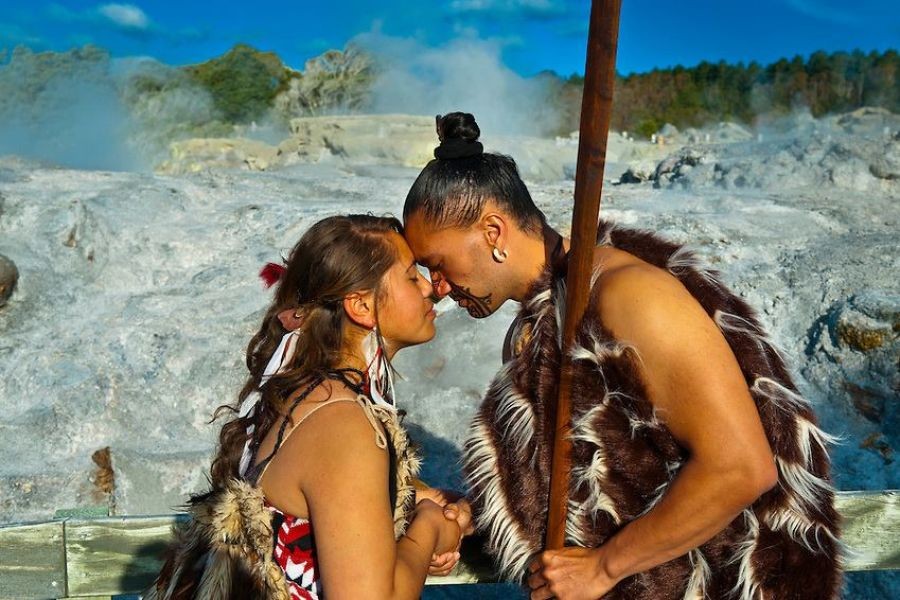In New Zealand, the role of Māori elders and leaders is deeply embedded within the social and cultural fabric. These figures are often seen as the guardians of knowledge and tradition, playing a crucial role in maintaining the cultural heritage of Aotearoa. As financial advisors operating in New Zealand, understanding how to properly honor Māori elders and leaders can be pivotal, not only in fostering respectful relationships but also in enhancing your business’s cultural competence and reputation.
The Significance of Māori Elders and Leaders
Māori elders, or kaumātua, and leaders, often referred to as rangatira, are central figures in Māori communities. They are custodians of traditional knowledge and play vital roles in decision-making processes, social cohesion, and cultural practices. Recognizing their importance is not just about respect; it's about acknowledging their role in the prosperity and sustainability of Māori communities.
Data-Driven Insights
According to Stats NZ, Māori enterprises are a growing force in New Zealand's economy, contributing billions to the GDP annually. This underscores the importance of cultural competence for financial advisors who seek to engage with Māori businesses and communities effectively.
Pros and Cons of Engaging with Māori Elders and Leaders
Pros:
- Enhanced Trust and Relationships: Engaging with Māori elders and leaders can strengthen trust and build long-lasting relationships, which are crucial in financial advising.
- Increased Cultural Competence: By understanding and respecting Māori culture, advisors can provide more culturally relevant advice, enhancing client satisfaction.
- Market Opportunities: Māori enterprises are increasingly involved in diverse sectors, including agriculture, tourism, and technology, offering new business opportunities.
Cons:
- Complex Cultural Protocols: Māori customs and protocols can be complex and require careful navigation, particularly for those unfamiliar with them.
- Potential Miscommunication: Misunderstandings can occur if cultural nuances are not fully appreciated or respected, potentially damaging relationships.
- Resource Intensive: Building genuine relationships with Māori communities requires time and effort, which may be challenging for busy professionals.
Case Study: Ngāi Tahu Holdings
Problem: Ngāi Tahu Holdings, one of New Zealand's largest iwi-owned businesses, sought to diversify its investment portfolio while maintaining cultural integrity.
Action: The company engaged financial advisors who respected and understood Māori values, incorporating cultural considerations into their investment strategies.
Result: Ngāi Tahu Holdings successfully expanded into new industries, achieving significant growth. Their approach is now a model for integrating cultural values with business objectives.
Takeaway: Financial advisors who invest in understanding Māori cultural values can unlock significant opportunities and foster more meaningful client relationships.
Balancing Cultural Respect and Business Goals
Contrasting Viewpoints
Advocate View: Engaging with Māori leaders enhances business outcomes by fostering trust and opening doors to new opportunities. Respectful engagement is seen as a strategic advantage in a multicultural society.
Critic View: Some argue that the complexities of Māori protocols can slow down business processes, potentially leading to missed opportunities in fast-paced industries.
Middle Ground: By blending cultural awareness with business acumen, financial advisors can respect Māori protocols while achieving business objectives. This approach requires ongoing learning and adaptation.
Common Myths and Mistakes
- Myth: "Māori elders are resistant to modern business practices." Reality: Many Māori leaders are actively engaged in contemporary business, integrating traditional values with modern strategies.
- Myth: "Understanding basic Māori greetings is enough." Reality: While greetings are important, a deeper comprehension of cultural protocols is essential for meaningful engagement.
- Myth: "Māori values and business goals are incompatible." Reality: Many Māori enterprises successfully integrate cultural values with business practices, proving they can coexist harmoniously.
Future Trends and Predictions
In the next five years, Māori enterprises are expected to play an increasingly significant role in New Zealand's economy. As their influence grows, financial advisors who understand and respect Māori culture will be in high demand. Integrating cultural competence into business practices will not only enhance relationships but also lead to more successful financial outcomes for both advisors and clients.
Conclusion
Honoring Māori elders and leaders in cultural settings is not just about respect; it's about recognizing their pivotal role in New Zealand's society and economy. As financial advisors, embracing this understanding can unlock new opportunities and foster trust-based relationships. By investing in cultural competence, advisors can better serve Māori clients, contributing to the prosperity of both their clients and their own businesses.
What’s your take? How have you integrated cultural competence into your practice? Share your insights below!
People Also Ask (FAQ)
- How does honoring Māori elders impact businesses in New Zealand? Engaging with Māori elders builds trust and opens doors to new opportunities, enhancing business relationships.
- What are the biggest misconceptions about Māori engagement? Many believe Māori elders resist modern business practices, but many integrate traditional values with contemporary strategies.
- How can financial advisors effectively engage with Māori leaders? Understanding cultural protocols and investing time in building genuine relationships are key strategies.
- What trends are shaping Māori enterprises in New Zealand? Growing economic influence and integration of cultural values with business practices are key trends.
Related Search Queries
- How to engage with Māori elders in business
- Māori cultural protocols for business
- Māori enterprises in New Zealand economy
- Building trust with Māori communities
- Cultural competence in financial advising
































katiecardillo6
7 months ago